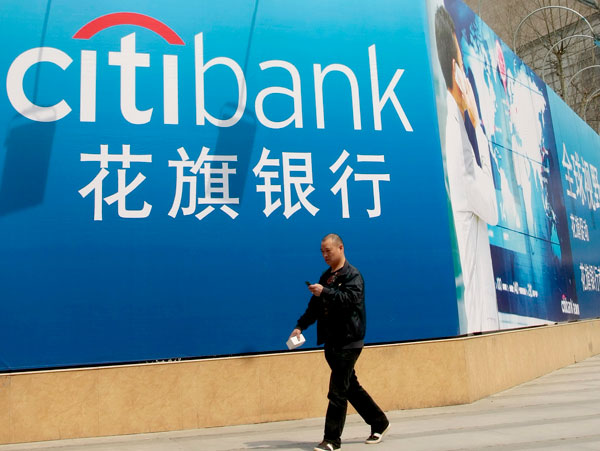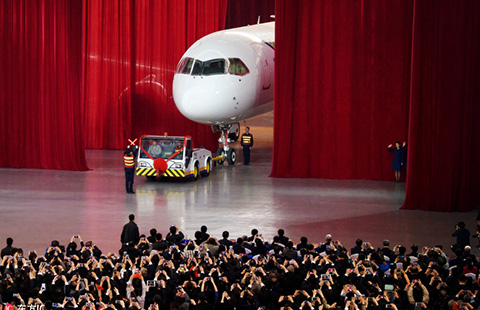Banks help to cut global risks
 |
|
A pedestrian walks past a Citi billboard in Nanjing. The multinational financial service provider with a wide global network and local expertise is stepping up efforts to help Chinese companies reduce expansion risks in the economies related to the Belt and Road Initiative. [Photo provided to China Daily] |
Belt and Road expansion plans of Chinese firms to get a boost
An increasing number of Chinese companies are seeking help from banks with a wide global network, local expertise and a deep understanding of the China market, as their interest in expanding in the economies related to the Belt and Road Initiative keeps growing along with concerns over risks.
According to a recent survey on more than 220 Citigroup clients attending the bank's Belt and Road Forum in Beijing, about 66 percent of them consider political and regulatory risks as the greatest concern when entering new territories, followed by counterparty/partner risks (16 percent), currency risks (10 percent), and funding and liquidity risks (8 percent).
Gerald Keefe, head of Asia-Pacific corporate banking at Citigroup, said risk management in context of the Belt and Road Initiative, which aims to promote the connectivity of Asian, European and African continents and their adjacent seas, can be broken down in a couple of different components. The critical ones that banks help manage are currency, liquidity, capital and funding risks. In some cases, risks that exist across business enterprises can be particularly acute in emerging countries.
"We have found in our early conversations with Chinese companies about their Belt and Road expansion plans that they are aware of these risks and very focused on them, and are seeking help from an experienced partner in managing those risks," Keefe said.
Currency risk can be hedged around commodities that might be inputs to projects that are being undertaken, he said, adding that Citi's network spans across 58 of 65 Belt and Road economies.
The initiative is not just about helping companies with their trade but also with areas ranging from capital markets, lending, advisory, hedging forex and interest rates across different currencies to satisfying their cash management needs.
During Beijing Gas Group Co Ltd's acquisition of 20 percent equity in the Verkhnechonsk field, one of East Siberia's largest oil and gas fields, from Russia's oil company Roseneft for $1.1 billion, Citi helped Beijing Gas receive a first-time long-term rating of A from Fitch Ratings, A3 from Moody, and A-from Standard& Poor's. Both Moody's and S&P's ratings are higher than the ratings assigned to its parent company-Beijing Enterprises Holdings Ltd.
Later in 2017, Beijing Gas issued five-year senior unsecured bonds worth $500 million in the overseas capital market at a coupon rate of 2.75 percent. The company also received a five-year club loan of $290 million from Citi and four other foreign banks together. These helped the company lower the overall overseas financing costs, and the price was competitive compared with domestic financing.
The acquisition granted Beijing Gas a pre-emptive right to purchase seven to 10 billion cubic meters of natural gas per year from Verkhnechonsk and the adjacent oil and gas fields, starting in 2020.
Xu Tong, vice-president of Beijing Gas, said as the company's first overseas direct financing project, "it deepened our understanding of the rules of the international mergers and acquisitions market and capital markets".
The project unveiled the globalization strategy of Beijing Gas, according to Xu.
"We will launch further cooperation with Roseneft to push ahead with the remaking of filling stations for natural gas and gasoline-powered vehicles in Russia," he said.













